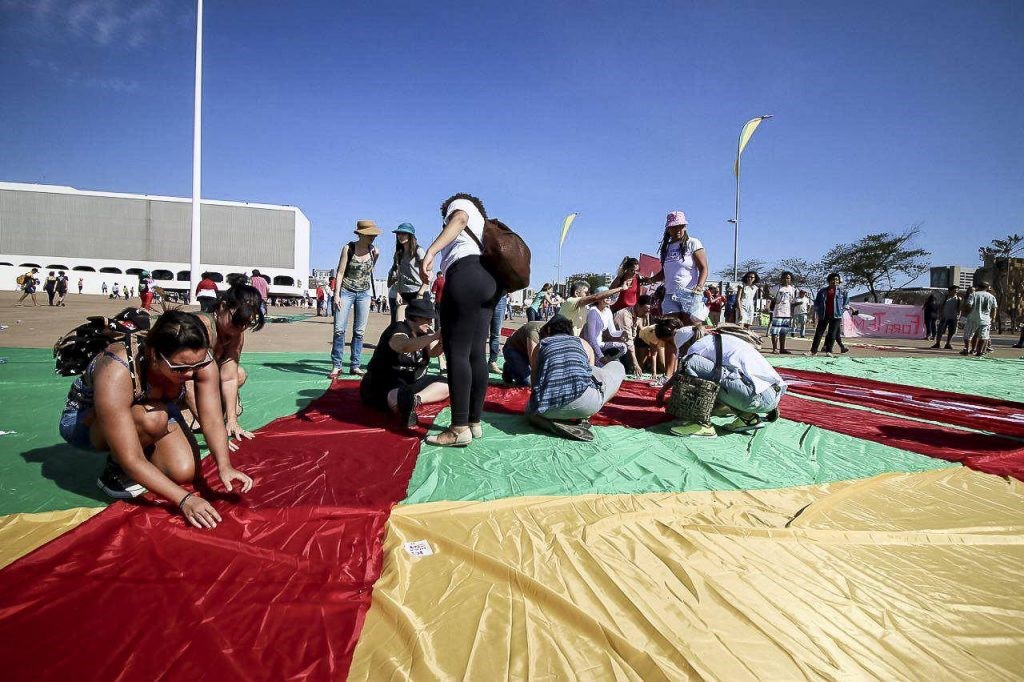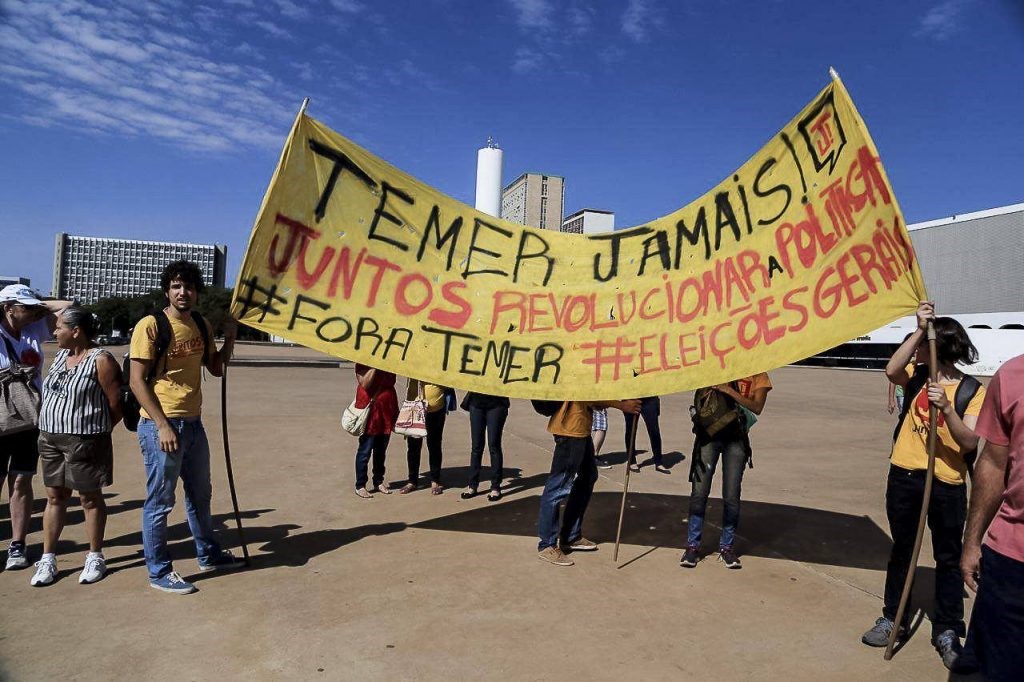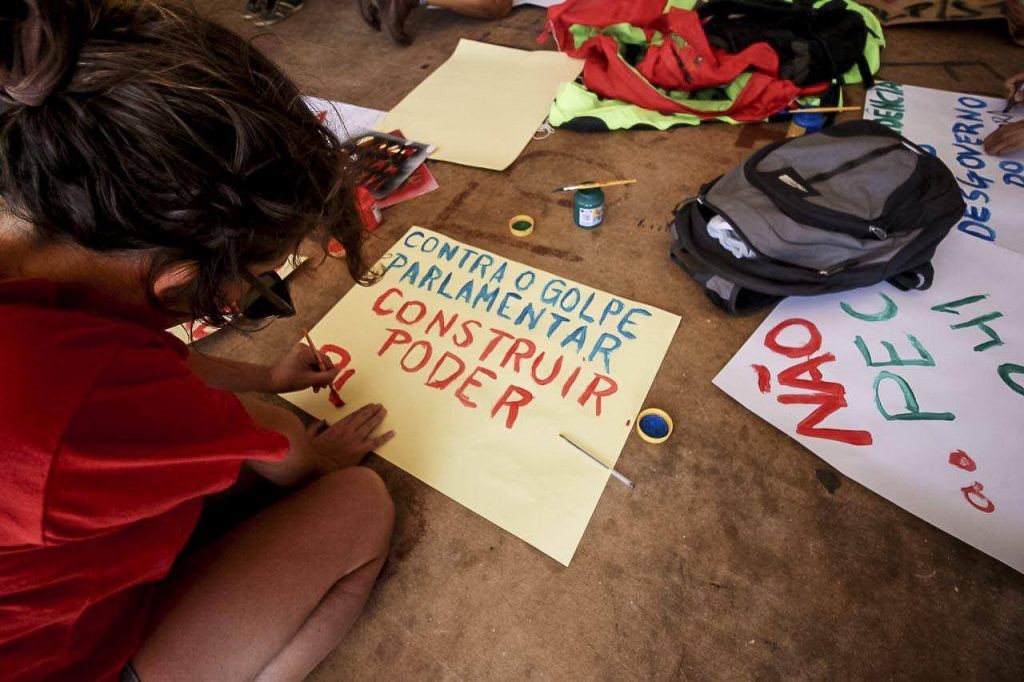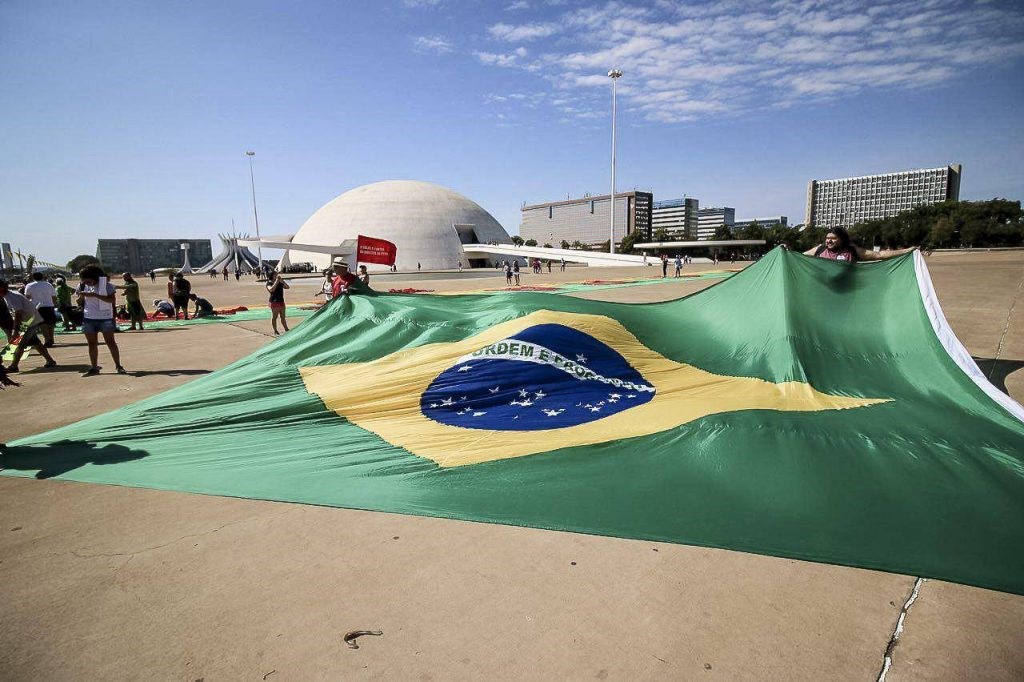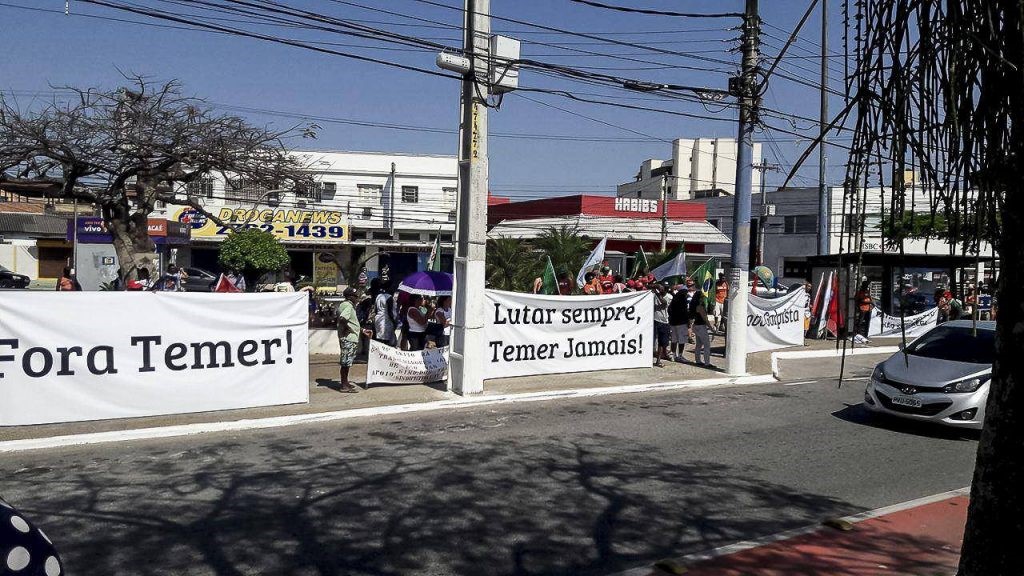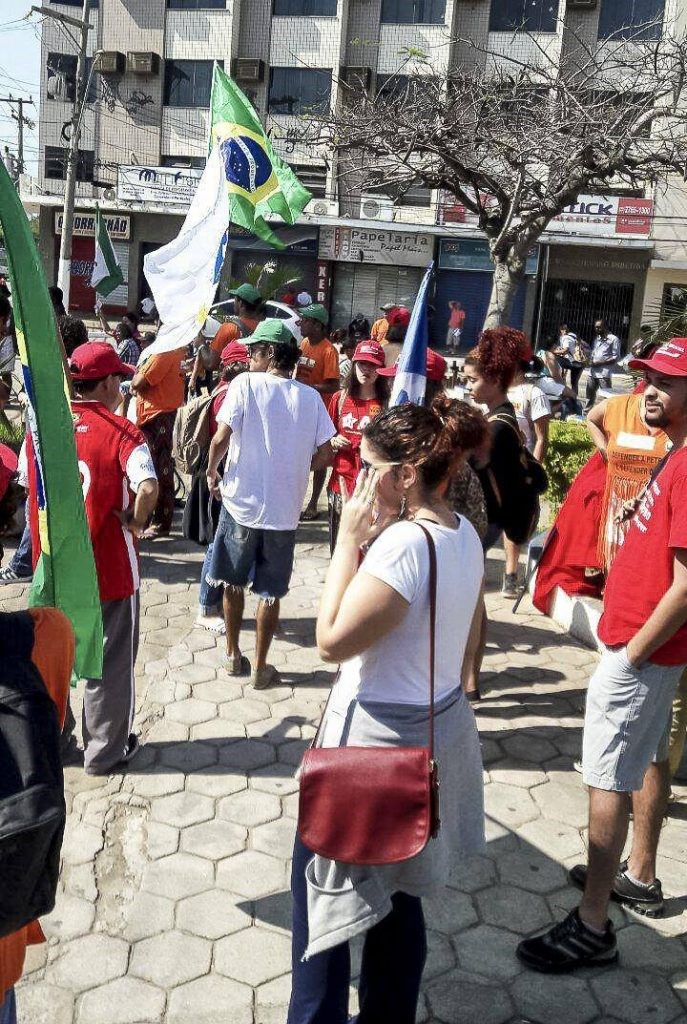Occupations and roadblocks on the “Days of Unified Struggle of Rural Workers”
This week, popular movements, unions, and religious organizations who work in rural areas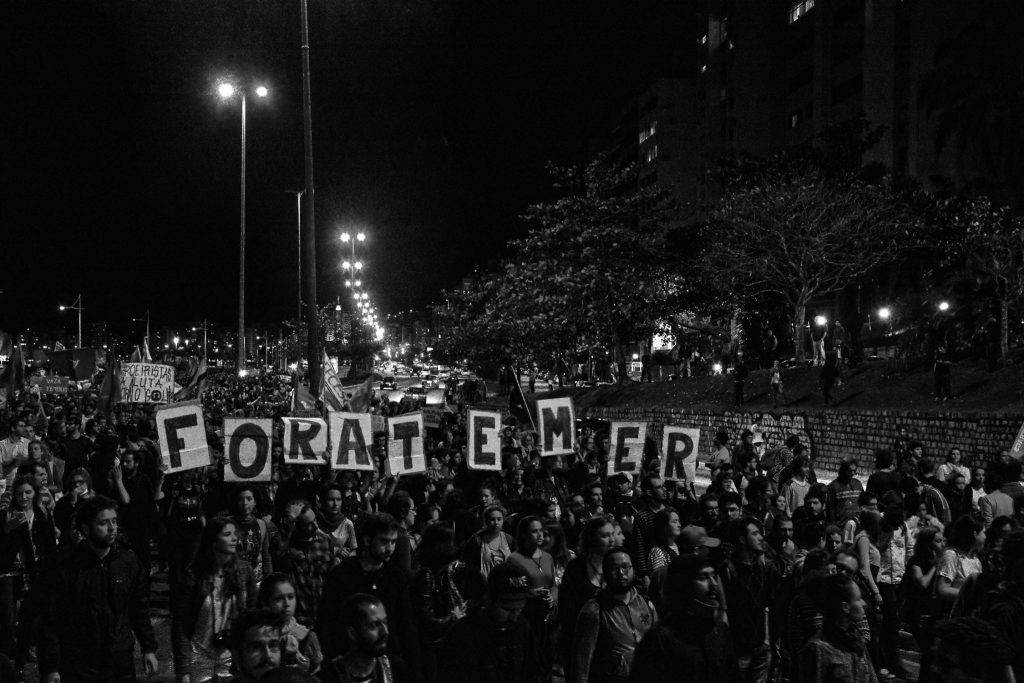 carried out the “Days of Unified Struggle of Rural Workers.” The days of struggle involved building occupations and blockade of roads — which started on Monday, Sept. 5, and ended on Thursday, Sept. 7. The organizations that convened this event are the Movement of Landless Workers (MST), the Movement of Small Farmers (MPA), Peasant Women (MMC), the Movement of People Affected by Dams (MAB), the Movement for Popular Sovereignty in Mining (MAM), and also the National Confederation of Farm Workers (Contag), the National Federation of Workers of Family Farming (Fefraf) and the Movement of Popular Peasants (MCP)
carried out the “Days of Unified Struggle of Rural Workers.” The days of struggle involved building occupations and blockade of roads — which started on Monday, Sept. 5, and ended on Thursday, Sept. 7. The organizations that convened this event are the Movement of Landless Workers (MST), the Movement of Small Farmers (MPA), Peasant Women (MMC), the Movement of People Affected by Dams (MAB), the Movement for Popular Sovereignty in Mining (MAM), and also the National Confederation of Farm Workers (Contag), the National Federation of Workers of Family Farming (Fefraf) and the Movement of Popular Peasants (MCP)
Unified actions started on Monday (Sept. 5) when more than two thousand people from popular movements linked to Via Campesina and other unions occupied the Ministry of Planning, in Brasilia (DF). Additionally, similar actions were held in Alagoas, Ceará, Rio Grande Do Sul, Rio Grande do Norte, Paraná, Espíritu Santo, Mato Grosso, Maranhão, São Paulo and Pernambuco, which hosted several acts, marches, and building occupations.
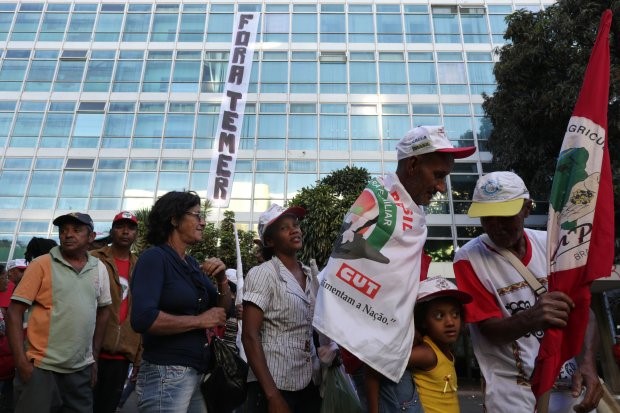 Protest in front of the Ministry of Planning
Protest in front of the Ministry of PlanningAccording to María Cazé, coordinator of the Movement of Small Farmers (MPA), the goal of their actions is to defend democracy and resist the Parliamentary coup consummated last August 31, after the voting in the Senate that separated Dilma Rousseff from the Presidency. The Movement of Small Farmers opposes to the cutting of rights, announced by the non-elected government of Michel Temer (PMDB) who, according to the militants, are “extremely serious,” not only for workers from rural areas but also for the progress of Brazil.
“For farmers, the threats about cutting the rights we conquered through our struggle was the last drop that has filled the cup.” We are occupying the Ministry because it’s the institution that sets and controls the budget for the policies that this government is promoting. We are going to take part in the planning issues that regard us,” said the leader.
As María affirmed, the organizations that participated in this event vindicate the immediate settlement of more than 120 thousand families who are camping all over Brazil, the revocation of the law which rules the selling of great land parcels to foreign capital since 2011 and the implementation of an agrarian policy that privileges the production of healthy food.
In addition to that, the small farmer’s movement criticized the reform of the Social Security system announced by the non-elected government, which propose the equalisation of the retirement age of men and women and between workers from the rural areas and from the city. They also demanded the restitution of the Ministry of Agrarian Development (MDA), shut down by Temer and relocated within the sphere of the Ministry of Social Development.
“The MDA is a symbol of the movement’s achievement after the Massacre of Eldorado de Carajás, in 1996, and it’s being brutally dismantled by this government,” she accused. Another demand in this days of struggle was the demarcation of the indigenous and quilombolas communities’ lands. Cléber Buzatto, executive secretary from the Missionary Indigenous Council (Conselho Indigenista Missionário, CIMI) told that more blockades are expected regarding this issue.
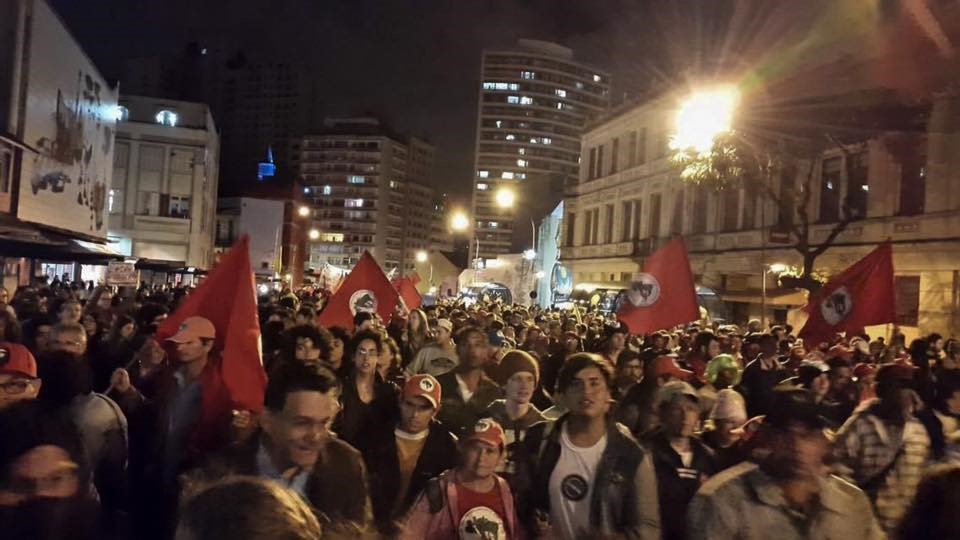
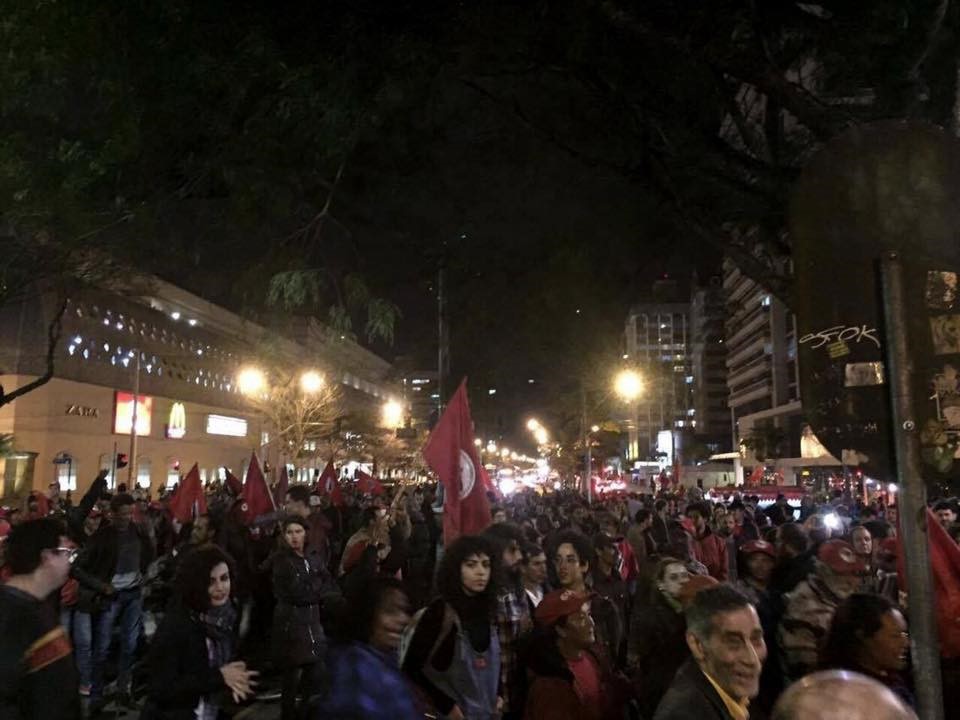 Mobilization in Curitiba
Mobilization in Curitiba“Another risk is the change in the legislation to stop new ways of demarcations and to open indigenous lands to be invaded and exploited by other parties. This issue takes on greater relevance because of the situation of the country,” he explained. The CIMI also participated in the establishment of the meeting and the secretary affirmed that at least one representative of the indigenous people, especially the Guarani-Kiowa people, is expected.
“The parliamentary coup brought to power a government with a perspective of strengthening agribusiness, opposing the claims of farmers and indigenous people. Its unrestricted support to rural sectors, from the National Confederation of Agriculture (CNA) or the Agricultural Research Institute (IPA. It’s time to mobilize, even though there are risks of repression against the movements,” affirmed the secretary of the CIMI.
On Wednesday the organizations that participate in the “Days of Unified Struggle of Rural Workers” joined the activities held in the second edition of the Grito dos Excluídos (Cry of the Outcasts). On September 7 the national holiday to commemorate the Independence of Brazil, several popular movements took to the streets to denounce exclusion and violence.
Photos of the Grito dos Excluídos Mobilization:
